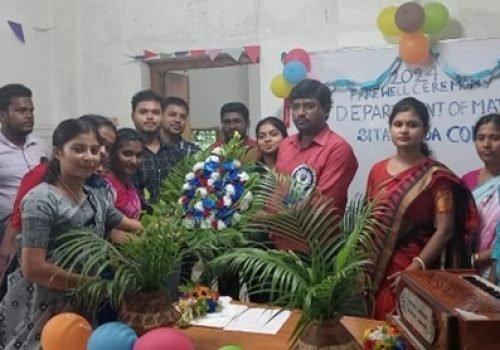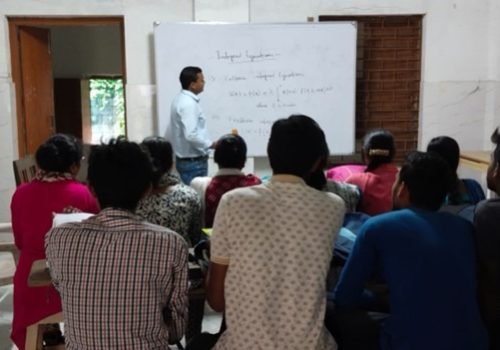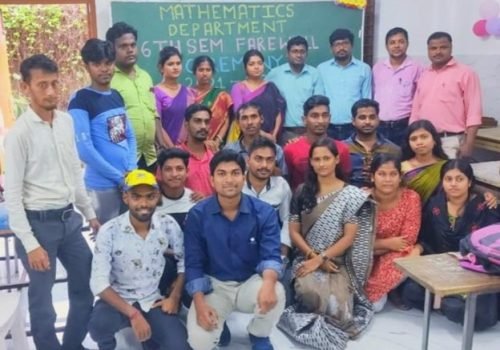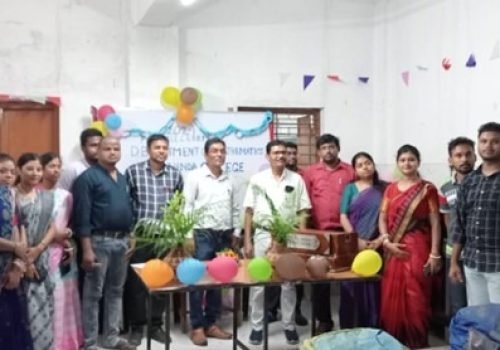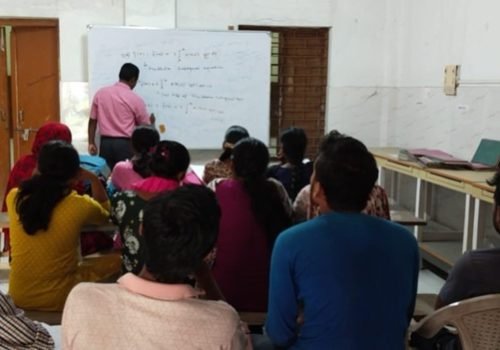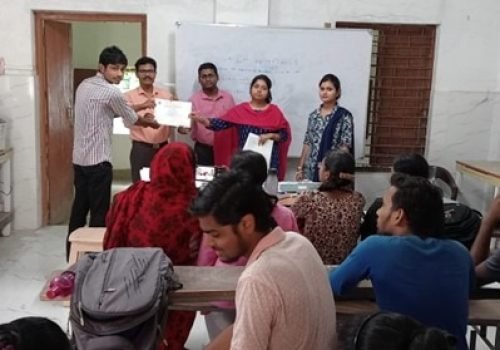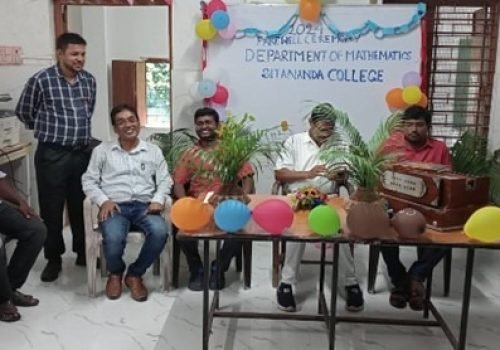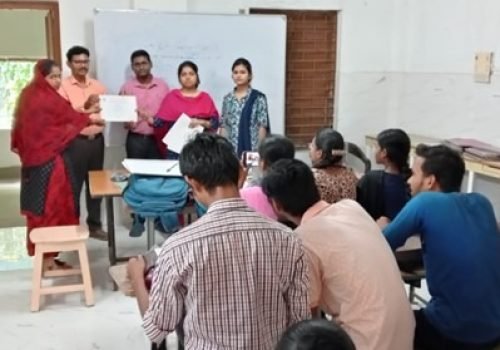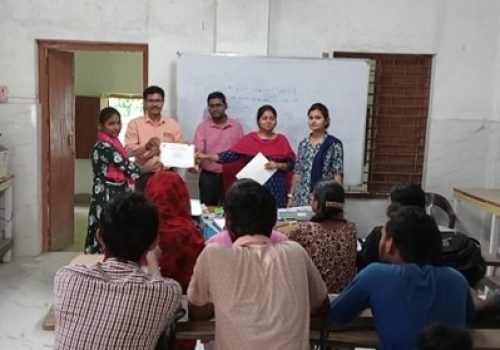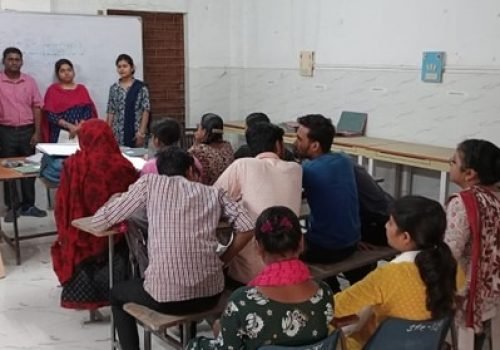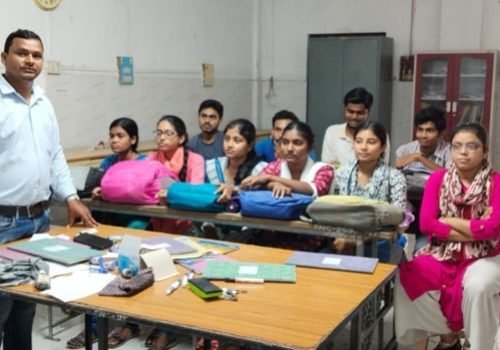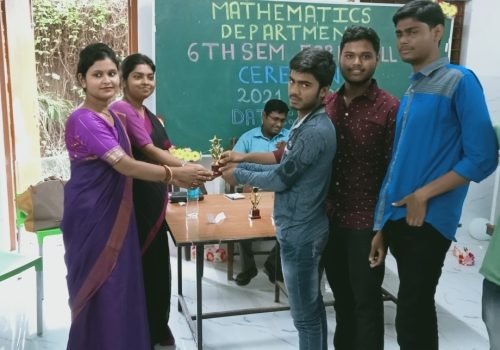Mathematics
Our Departments
Announcements
Notice Inviting Sealed Rate Quotations For Empty Colour Containers (20l & 10l)
UG 1st Semester Registration Schedule (Session 2025–2026)
Important Notice Regarding Registration Certificate Submission
UG admission Verification notice: Stand alone Mode 1
About The Department
Sitananda College department of mathematics is one of the oldest department. The department has started with the BA(Pass) course with two teachers from the beginning of the in 1960 with the affiliation no. 0/149/161-affl. Dated 19 July 1960 and later pass course has upgraded to Honours course vide memo. C/2600/Affl.119. dated 7th June 1965. At present the department is enriched with three full time teachers and six SACT teachers.
The broad range of mathematical disciplines we Cover Pure and Applied Mathematics, Theoretical Physics and Computational Sciences. To impart training to students with a view to create competent and motivated academicians, the Department always tries to inculcate human values, and encourages independent thinking among the students for the benefit of the society.
The department is deeply involved in teaching and research. By means of publishing quality research articles, conducting seminars, delivering lectures in seminars as resource person etc.
Why study in this department?
Vision & Mission
- To implement curriculum, instructional strategies, and courses that effectively promote the learning of students.
- To impart high-quality mathematics education and inspire a spirit of inquiry.
- To generate and share mathematical knowledge with the utmost brilliance. The department is dedicated to giving students an education that blends an interest of learning with demanding academics.
- To create an atmosphere where students may learn, develop into proficient math users, and comprehend how math is used in other subjects.
Future plan
- To start the MSc programme in Mathematics.
- To develop departmental Laboratory and library.
- To conduct the research programme.
- To increase minor subjects with mathematics as major.
Courses offered: UG [Core and Generic(CBCS); 4 Yr H & R, 3 Yr Multidisciplinary(NEP)]
Annual/ semester/choice based credit system (Programme wise):
CBCS (Semester and Choice Based Credit System)
Semester and CCFUP(2023) & NEP(2023)
Participation of the department in the courses offered by other departments: Students of Mathematics Honours attend the classes/Courses offered by Chemistry and Physics. Department as well. Also the Students of Mathematics Honours attend the classes (i) Compulsory English (ii) Compulsory Bengali and (iii) Compulsory Environmental studies.
In NEP system students attend the classes Skill Enhancement Course, Ability Enhancement Course, Multi Disciplinary Course, value added course like Environmental science, Yoga etc.
Facilities offered
- Department has beautiful laboratory with about ten modern computers. The department of mathematics boasts spacious well –furnished and dedicated laboratory set up only for under graduate course. The laboratory is well equipped with computing software like MATLAB, MATHEMATICA and writing tools like MS Word, MS Excel and LATEX etc. The computers are with the Wi-Fi network that provides students hassle-free way of carrying of practical session.
- Departmental Library: - The Department maintains a well- stocked library with the prescribed text books and references books of mathematics for the benefit of the students.
- The teachers take their classes in modern way not only in chalk duster method.
- Student Achievements: From our department, many students are working in the different position of the society.
Departmental Results
| Academic Session | No. Of Students Appeared | No. Of Students Passed | Result Analysis (%) |
|---|---|---|---|
| 2017-2018 | 8 | 8 | 100 |
| 2018-2019 | 9 | 9 | 100 |
| 2019-2020 | 28 | 28 | 100 |
| 2020-2021 | 19 | 19 | 100 |
| 2021-2022 | 15 | 15 | 100 |
| 2023-2024 | 8 | 8 | 100 |
Curriculum Plan
1. Cultural Appreciation
Bengali literature offers a profound insight into the rich cultural heritage, traditions, and ethos of the Bengali-speaking people. By studying Bengali literature, students gain a deeper appreciation for the diverse cultural nuances embedded within the language, fostering cross-cultural understanding and respect.
2. Language Proficiency
Bengali literature serves as a linguistic resource for students to enhance their proficiency in the Bengali language. Through exposure to a wide array of literary genres, styles, and linguistic expressions, students develop a nuanced understanding of Bengali grammar, vocabulary, and syntax, thereby strengthening their language skills.
3. Aesthetic Appreciation
Exposure to the literary masterpieces of Bengali literature cultivates students' aesthetic sensibilities and fosters an appreciation for artistic expression. Through the exploration of poetic imagery, narrative techniques, and rhetorical devices, students develop a discerning eye for beauty, creativity, and artistic innovation.
4. Literary Analysis & Interpretation
Studying Bengali literature hones students' analytical and critical thinking abilities as they dissect and interpret complex literary texts. By analyzing themes, characters, motifs, and literary devices, students learn to discern deeper meanings, contextualize historical and social influences, and appreciate the intricacies of narrative structures.
5. Cultural & Historical Context
Bengali literature provides a window into the socio-political, historical, and cultural milieu of Bengal across different epochs. Through the study of literary works spanning various periods, students gain insights into the evolution of Bengali society, its triumphs, challenges, and transformations, thus fostering a holistic understanding of regional history and identity.
6. Identity Formation
Bengali literature plays a pivotal role in shaping individual and collective identities, offering diverse narratives and perspectives that resonate with readers' personal experiences and cultural backgrounds. By engaging with literary works that reflect themes of identity, belonging, and self-discovery, students embark on a journey of introspection and self-awareness, enriching their sense of cultural identity and belongingness.
Student Progression Reports
| Academic Session | No. Of Students Appeared | No. Of Students Passed | Result Analysis (%) | Highest Marks in % |
|---|---|---|---|---|
| 2017-2018 | 8 | 8 | 100 | 57.25 |
| 2018-2019 | 9 | 9 | 100 | 55 |
| 2019-2020 | 28 | 28 | 100 | 97.5 |
| 2020-2021 | 19 | 19 | 100 | 84.8 |
| 2021-2022 | 15 | 15 | 100 | 92.5 |
| 2023-2024 | 8 | 8 | 100 | 66.9 |
Seminars & Workshop
Faculty Members
Assistant Professor || Dept. of Mathematics
Assistant Professor || Dept. of Mathematics
Assistant Professor || Dept. of Mathematics
SACT || Dept. of Mathematics
SACT || Dept. of Mathematics
SACT || Dept. of Mathematics
SACT || Dept. of Mathematics
SACT-1 || Dept. of Mathematics











